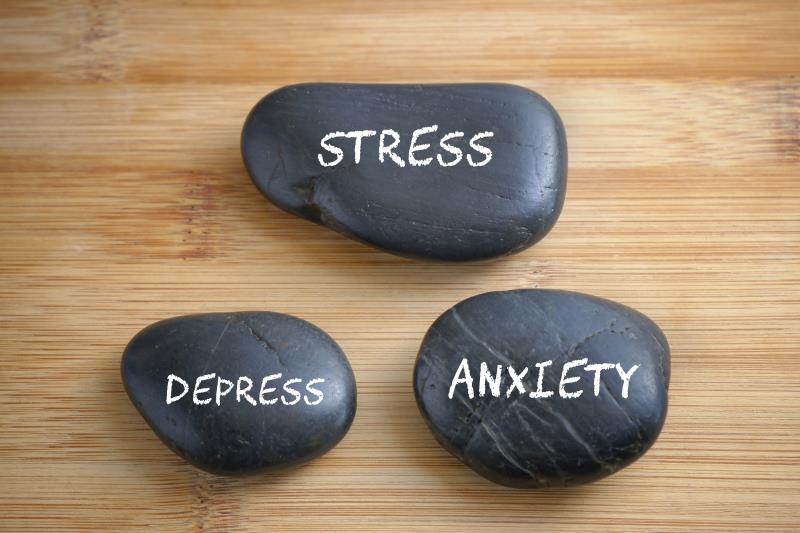
The antidepressant sertraline may have a greater impact on anxiety than depression symptoms, according to the PANDA study conducted in a UK-based primary care setting.
“We have found important evidence that sertraline can lead to clinical benefits for patients in primary care with depressive symptoms. However, these benefits occur mainly through improvements in anxiety symptoms and quality of life (QoL) rather than reductions in depressive symptoms,” said the authors led by Dr Gemma Lewis from the Division of Psychiatry, University College London, London, UK.
The study population comprised 655 adults (mean age 39.7 years, 59 percent female) recruited from 179 primary care surgeries in four cities in the UK. They had experienced symptoms of depression in the past 2 years, with “clinical uncertainty” regarding the benefit of antidepressant treatment. They were randomized 1:1 to receive oral sertraline (50 mg/day for 1 week followed by 50 mg BID for up to 11 weeks) or placebo.
Eighty percent of patients reported a history of depression and 60 percent a history of antidepressant use. Fifty-four percent of patients met the criteria for depression, 46 percent for generalized anxiety, and 30 percent for both, based on the CIS-R* criteria.
From the 550 patients included in the primary analysis, clinically meaningful reduction in depressive symptoms at 6 weeks, measured using the PHQ-9** score, did not differ between sertraline and placebo recipients (mean score 7.98 vs 8.76; adjusted proportional difference [adjPD], 0.95, 95 percent confidence interval [CI], 0.85–1.07; p=0.41). [Lancet Psychiatry 2019;doi:10.1016/S2215-0366(19)30366-9]
A greater impact on PHQ-9 scores with sertraline over placebo was noted at 12 weeks (adjPD, 0.87, 95 percent CI, 0.79–0.97).
Severity of depression at baseline appeared to affect PHQ-9 score at 6 weeks, with every unit increase in CIS-R depression score associated with a 3 percent increase in PHQ-9 score (adjPD, 1.03; p=0.0046). However, there was no indication that depression severity or duration affected treatment response (p=0.9907 and p=0.8203, respectively).
In contrast, anxiety, as measured using GAD-7*** scores, was improved at 6 weeks, with a 21 percent lower score among sertraline than placebo recipients (adjPD, 0.79, 95 percent CI, 0.70–0.89), and a greater between-group difference over time (p=0.0075).
Mental health-related QoL scores were greater in sertraline than placebo recipients (adjPD, 2.41; p=0.00021), with no between-group difference for physical health-related QoL scores.
There was a higher likelihood of remission at 12 weeks with sertraline vs placebo, particularly when symptoms were measured using BDI-II# (adjusted odds ratio [adjOR], 2.69). Patients on sertraline were also more likely to report feeling better rather than feeling the same or worse (adjOR, 1.96; p<0.0001).
“It appears that people taking the drug are feeling less anxious, so they feel better overall, even if their depressive symptoms were less affected,” said Lewis.
“We hope that we have cast new light on how antidepressants work, as they may be primarily affecting anxiety symptoms such as nervousness, worry, and tension, and taking longer to affect depressive symptoms,” she said.
“However, an improvement in anxiety symptoms in someone presenting with depression could lead to a clinical benefit,” said Lewis and co-authors. “In cases where there is uncertainty about prescribing an antidepressant, the presence of anxiety symptoms … could indicate an increased likelihood of benefit.”
Adverse event (AE) incidence was comparable between sertraline and placebo recipients (n=4 vs 3). One of the two serious AEs in sertraline recipients was considered possibly study drug-related. Treatment adherence was comparable between groups.
According to the researchers, the findings may be applicable to other selective serotonin reuptake inhibitors (SSRIs), seeing as how the mechanism of action is similar across the class. “Our findings [also] support the prescription of SSRI antidepressants in a wider group of participants than previously thought,” they said.
“Clinicians and patients should be aware of the symptoms that are likely to improve so that they can consider alternative management of depressive symptoms that might not respond,” they added.